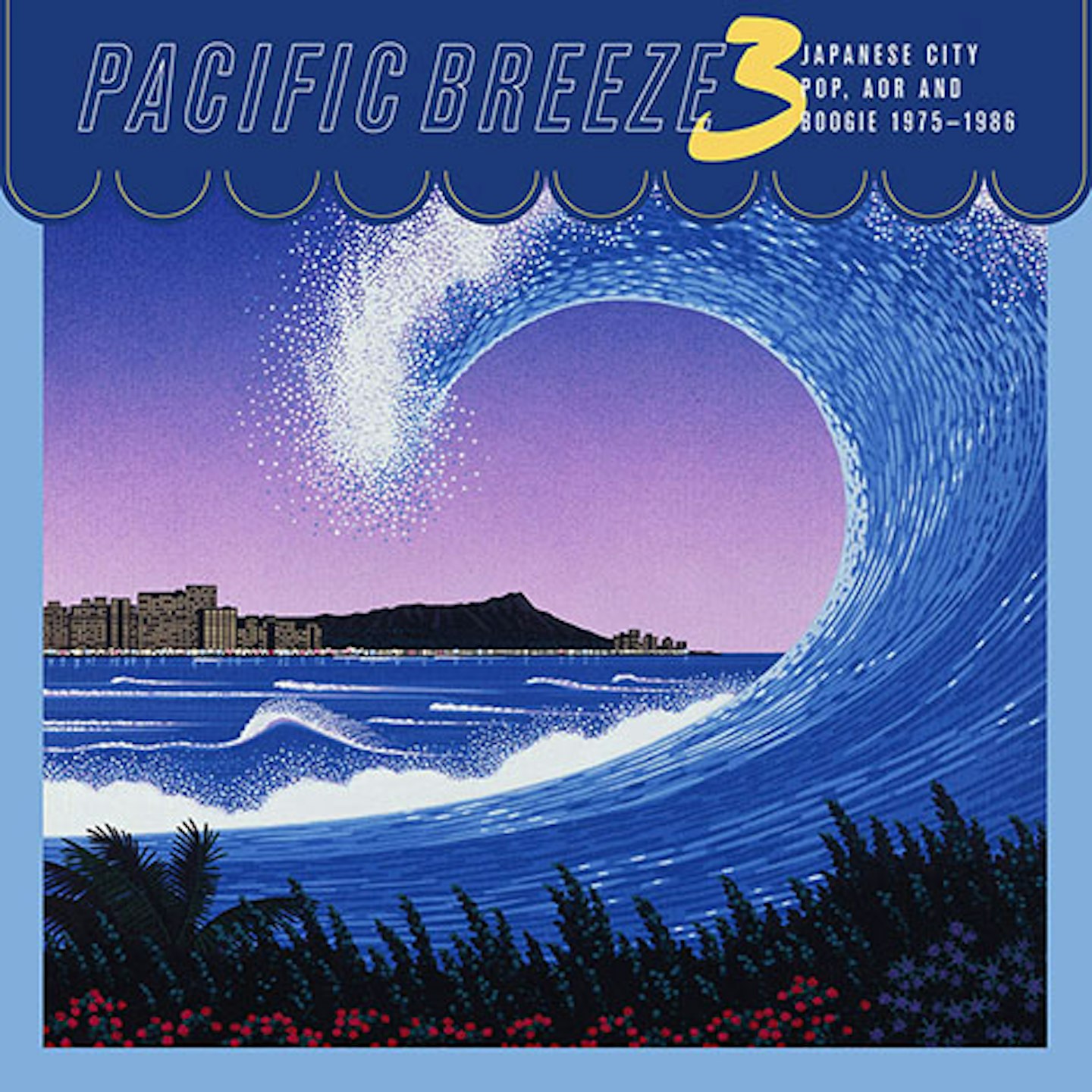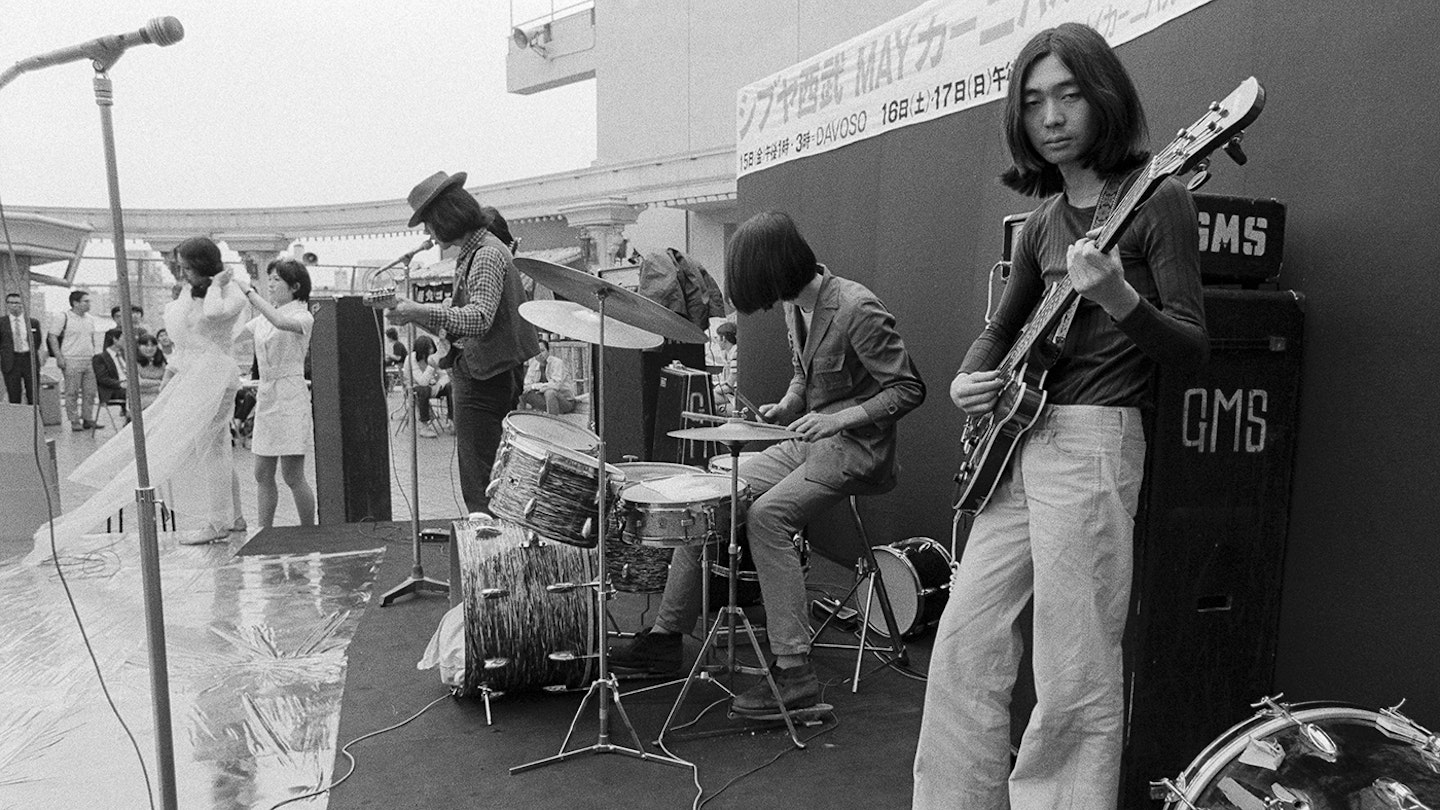The bright, deluxe sound of Japan in the boom-time.
Pacific Breeze III, Japanese City Pop, AOR And Boogie 1975-1986
★★★★
Light In The Attic. CD/DL/LP

The loose term ‘City Pop’ was coined in Japan in the 1990s to describe the music forged in the previous decades of prosperity and productivity for the nation, a sophisticated sound that felt vibrantly modern in its moment, urban and neon lit. Growing out of the early-’70s pop known simply as “new music”, City Pop leant heavily on American jazz fusion, disco and electro. It’s a term vague enough to encompass a broad spectrum of artists who maybe sounded unalike – from lounge jazzers to synth sequencers – but who operated within a similar zone of deluxe musicality, the world of silky chord voicings designed to lubricate the slipway towards a feelgood moodswing, sometimes with a hint of pastiche or homage. In his 2012 book about J-pop’s origins, Sayonara Amerika, Sayonara Nippon, Michael K. Bourdaghs describes City Pop as “deconstructing the line between imitation and authenticity.”
According to the following generation of music fans, it was tarred with the cheese brush, but just as the yacht rock craze rehabilitated that particular vibe, City Pop is now enjoying a resurgence, both in its original form and through new practitioners, and it’s becoming appreciated outside Japan too, thanks partly to Light In The Attic’s Pacific Breeze series, compiled and produced by Yosuke Kitazawa and Mark ‘Frosty’ McNeill and now onto a third volume: Pacific Breeze III, Japanese City Pop, AOR And Boogie 1975-1986 ★★★★.
Sweet easy listening with an urgency beneath the surface, a soundtrack for enjoying the good times.
Haruomi Hosono, future member of Yellow Magic Orchestra, was a pioneer of the aesthetic. His early-’70s band Happy End created some of the first tracks recognised as City Pop, sweet easy listening with an urgency beneath the surface, a soundtrack for enjoying the good times. He’s present on several tracks here, such as the jittery Scandal Night by Miharu Koshi, a song from her 1983 album Tutu, which feels like Kate Bush going techno. Actual ‘Queen of Techno Pop’ Susan is represented by her buoyant 1980 hit Ah! Soka. The protégé of another member of YMO, Yukihiro Takahashi, Susan was a French-Japanese artist who made a rare breakthrough in parts of Europe at the time. While her contribution sounds like it could only have come from Japan, opening track Bewitched (Are You Leaving Soon) by Naomi Akimoto is a breathy whirl of plastic funk, heavy on the DX7, which feels indebted to the style of Anita Baker and includes someone ably mimicking Steve Wonder’s signature harmonica sound for a solo. Somewhere between the two lies Parachute’s exquisite Kowloon Daily from 1980, sung by Izumi ‘Mimi’ Kobayashi.
For contrast, there’s 1979’s Tropical Love, a reggae track performed by actress Teresa Noda, written by Kazuhiko Kato of the Sadistic Mika Band and arranged by yet another YMO alumnus, Ryuichi Sakamoto, to a groove very similar to Bob Marley’s Waiting In Vain. It was actually cut in Jamaica with Rita Marley among the backing singers.
Heartbeat, by former Chocolate Lips frontwoman Miho Fujiwara, was written by American artist Wornell Jones under the alias Matthew Kamei and dates from the end of this period, by which time hip-hop and house music are making their presence felt, heavier drum machines taking it to a place between The SOS Band and new jack swing. By contrast, an instrumental winningly named Pub Casablanca is full-on electro with an 8-bit video game feel, and fizzing final track Untotooku is a nugget of DayGlo synth-pop sung by actress Chiemi Manabe, which has became a favourite among crate-digging DJs. The future’s represented by Boy Meets Girl, an early effort by Pizzicato Five, who’d come to prominence in the ’90s by gleefully exploring that line between imitation and authenticity, collaging direct lifts from lounge classics for their trips to uncanny valley.
If you’re fascinated by parallel-universe pop, get yourself in the vicinity of this intriguing collection and its predecessors.
Pacific Breeze III, Japanese City Pop, AOR And Boogie 1975-1986 is out now via Light In The Attic.
READ MOJO'S VERDICT ON ALL THE MONTH'S BEST MUSIC. Plus, receive every new issue of MOJO on your smart phone or tablet to listen to or read. Enjoy access to an archive of previous issues, exclusive MOJO Filter emails with the key tracks you need to hear each week, plus a host of member-only rewards and discounts by BECOMING A MOJO MEMBER
